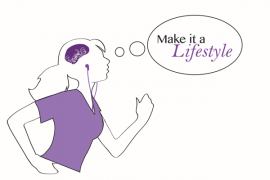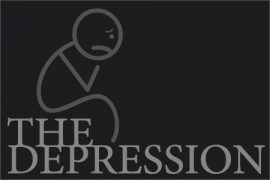What happens to our brains when our beliefs are questioned? Why is it that when we are given evidence that counterattacks our beliefs, we feel emotionally threatened?

I have always wondered why people become defensive when a certain belief they have is questioned. It could be as silly as a belief on how many times their bedsheets need to be washed or as serious as a belief related to the values they live their lives by. The defensive response you would get when questioning it is the same –because when it comes to closely held beliefs, the brain cannot differentiate between a trivial and a paramount belief, the brain actually links your self-worth to keeping those beliefs alive. How does it work?
Just like we have immune systems to defend our bodies from external viruses and attacks, our brains do the same on a psychological level – they act as a continuation of our immune system, bringing the same defense mechanisms used to protect the body. In a study done by Jonas Kaplan, a psychologist at the University of Southern California, 40 individuals were asked challenging questions about their beliefs, while recording their brain activity through an fMRI scanner. Keep in mind that the questions asked weren’t necessarily factual or true, instead, they were designed to challenge certain closely-held beliefs. The results were astonishing, the brain showed activity in the same areas that control defense responses to physical threats, self-identity, and negative feelings. Those areas of the brain are also crucial in defining our sense of individuality and in deconstructing patterns of profound intellectual thoughts. Interestingly enough, participants who scored higher on the question of inflexibility when it comes to their beliefs had stronger brain activity in the region that associates with threat apprehension. Especially when presented with evidence that counterattacks their opinions.
Knowing the results of this study, we can now understand why people’s responses to such questions are always charged with negative emotion. Such beliefs act as a block that hinders our perception, in which our brain only allows the information that supports our pre-existing beliefs to perpetuate. This can also help us understand why attempts to correct the wrong information to such beliefs almost always backlashes, resulting in people more committed to their notions.
Although it might seem close to impossible to change one’s view on their beliefs, a good way to initiate a conversation about beliefs is to first start with reminding ourselves that our personal identity is separate from the things we believe in – since we tend to notice the defensive responses in other people before pointing out at ourselves.



